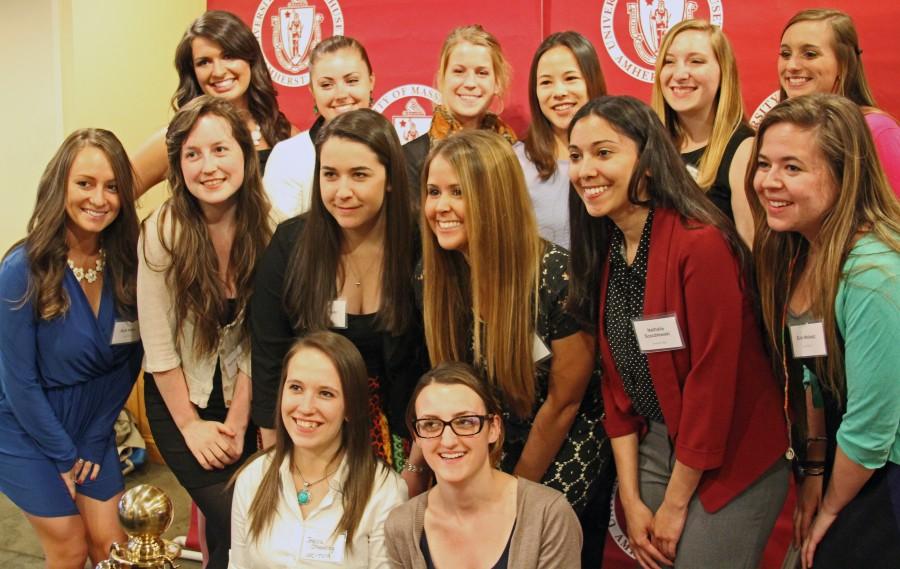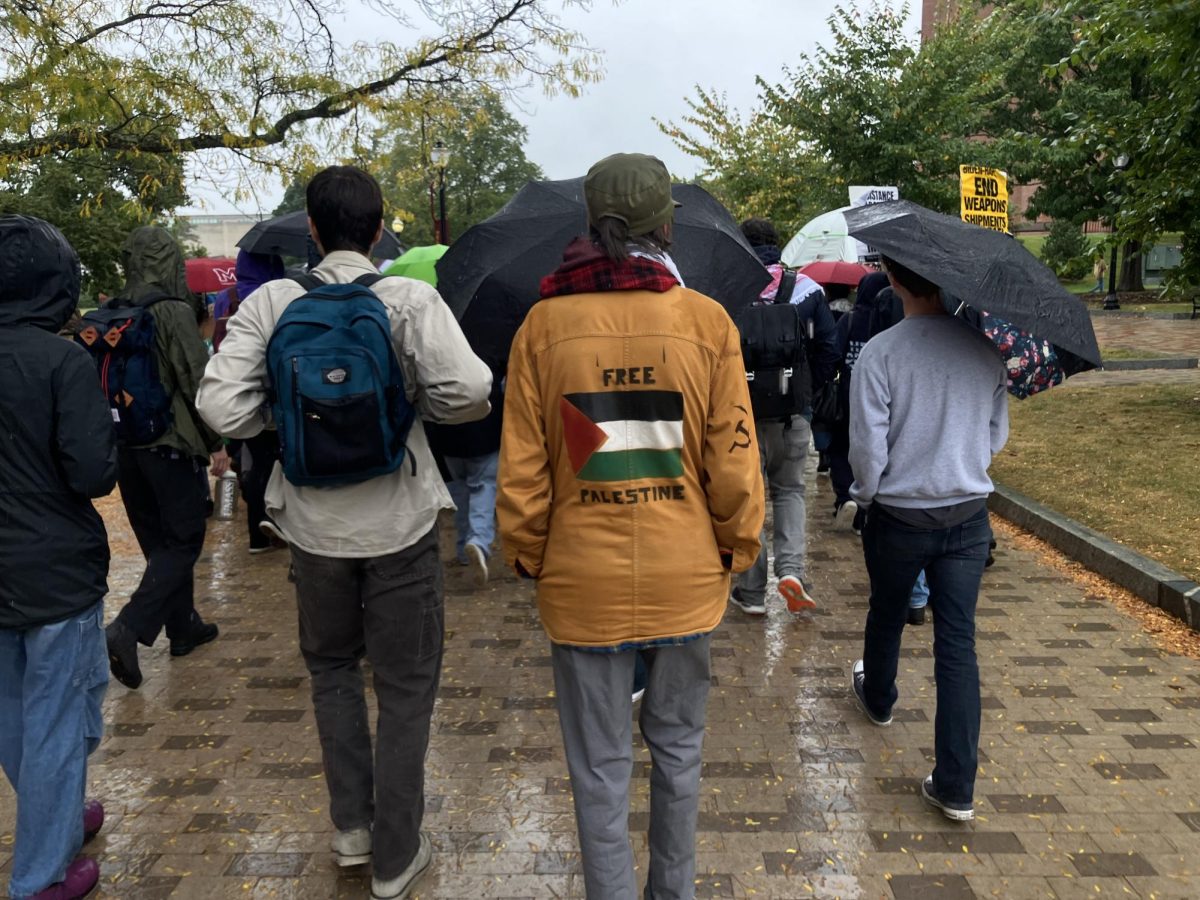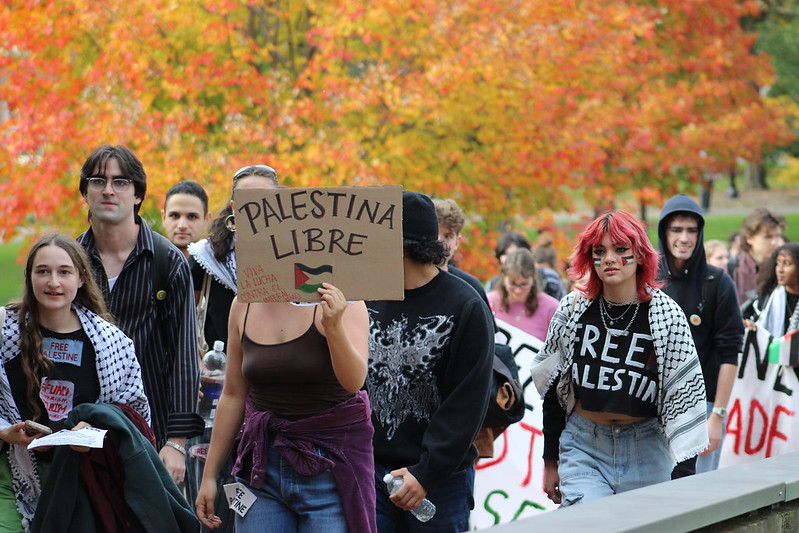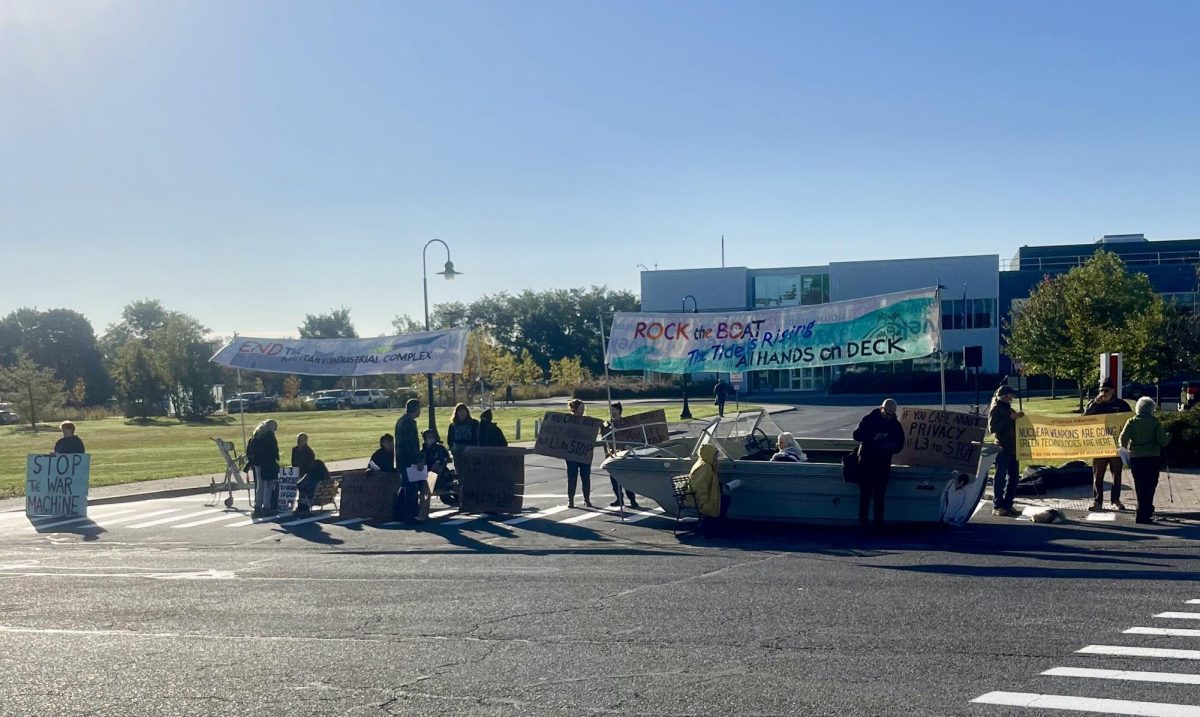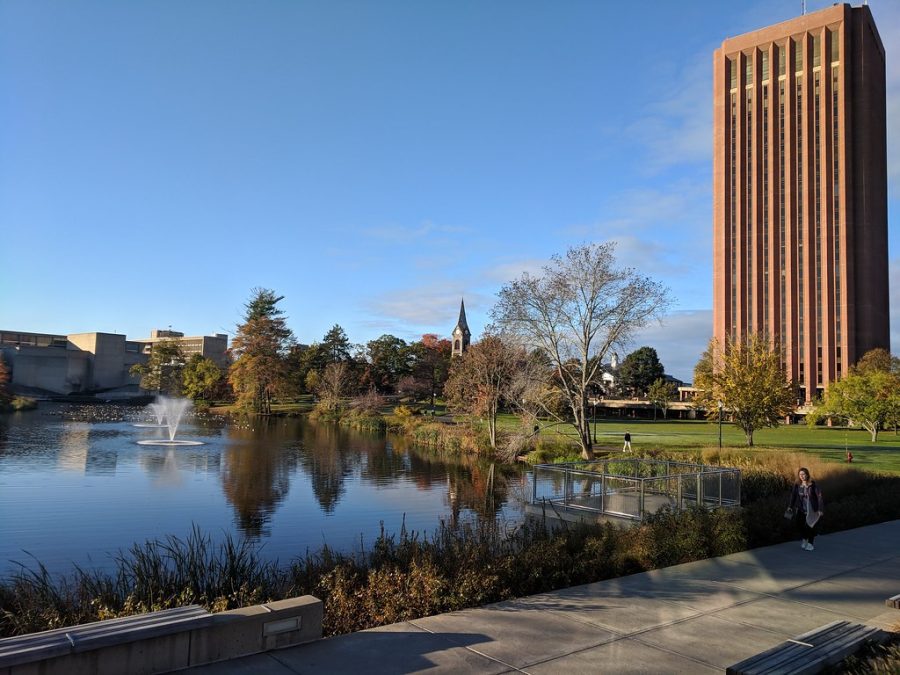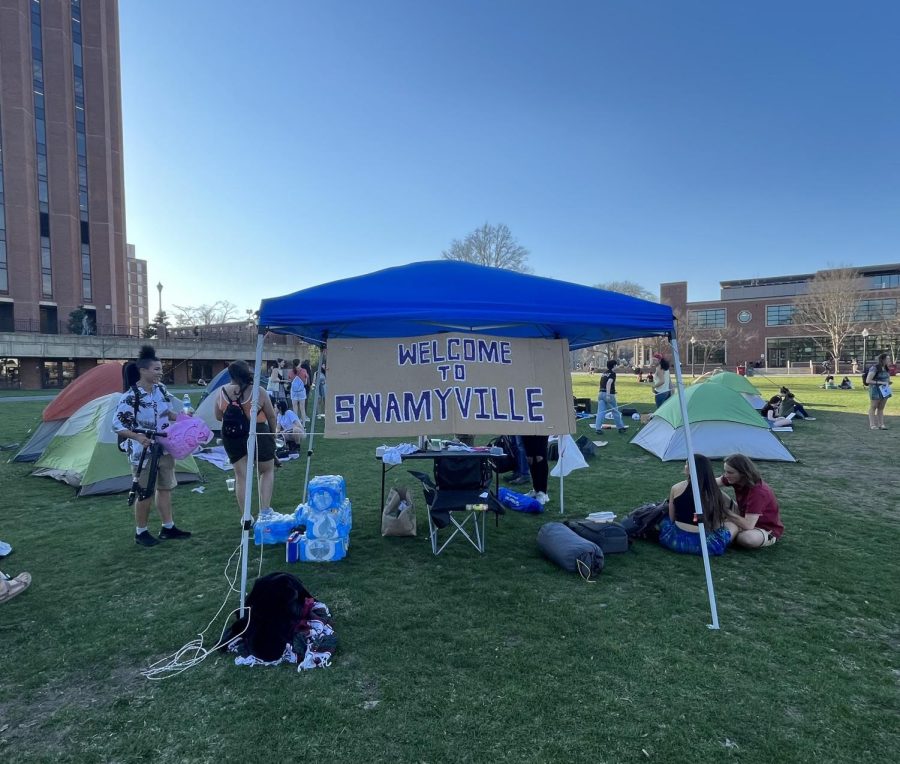by Kate Ferrante
Rows of chairs were aligned opposite a panel of women setting down their bags and reviewing their notes. Each chair had a pen and notepad placed on top, inscribed with the conference’s title in pink that read ” UMass Amherst Women in Media Conference.” The first annual conference was held in the campus center on Thursday, April 24th.
First to speak was Madeleine Blais, current journalism professor at UMass Amherst whose courses include The Art of the Profile, Literature and Film in the Documentary Tradition, and Diaries, Memoirs and Journals. Being a former reporter for the Boston Globe, the Trenton Times, and Topic Magazine of the Miami Herald, along with winning a Pulitzer Prize for feature writing, she had a lot of wisdom and experience to share.
She presented on an essay of her own called “The Ratio is Narrowing” which appears in “A Story Larger than My Own: Women Writers Look Back on Their Lives and Careers,” published this March by the University of Chicago Press.
Blais told an anecdote of a woman denied from an internship to depict discrimination in the workplace, while also describing her personal struggles in the industry. Being a woman, she described gender-specific jobs that she was assigned to, such as working for an escort service, and explained how there are both pros and cons to taking on these types of stories. Since she was a little girl, she had always known that she wanted to be a journalist.
“I craved newsworthy events. I wanted to find Russian spies in my backyard,” she said.
Next to speak was another UMass professor, Shaheen Pasha, who has taught Introduction to Journalism and her self-made course Going Global: Changes in International Journalism since January 2013. She graduated with a master’s degree in journalism from Columbia Graduate School of Journalism, has experience working in the Middle East, and has worked for Reuters, Dow Jones, and CNBC Asia. She gave an inspiring speech about the internal and external struggles women in the media face, which include gender stereotypes, low self-esteem, insecurity, and physical appearance.
For her, growing up in the worst part of Brooklyn, “journalism was an escape,” she said.
However, when Pasha was 19, she began doubting her career as a journalist following her first internship with MTV. After being encouraged to take a head shot in order to begin applying for jobs in broadcast news, the photographer told her, “frankly you are just not pretty enough to be a TV journalist and you’re not the right type of Asian. “This discouraged Pasha because she then realized that although men of all shapes, sizes, and aesthetic appeal are seen on television, only one type of woman is featured—young, beautiful, skinny, and usually white.
However, Pasha said she was able to “silence the voice” in her head that said she wasn’t good enough and went into financial journalism, which just happened to be a male dominated society.
She shared one experience while in Dubai. A CEO at an interview asked her to get him coffee because he expected her to be a secretary or assistant rather than the financial journalist he was meeting. Rather than feeling degraded and insecure by this, it served as fuel to her fire, and taught her how to be aggressive and confident.
She ended by saying, “to the women in the audience, you have to be prepared to fight that voice in your head. It scared me. That’s why I did it.”
Pasha was followed by Teresa Hanafin, a graduate of UMass Amherst who has worked at the Boston Globe for 29 years. Moving to Boston.com as its first editor in 1999 and investing a lot of her efforts into social media, she spoke in her thick Boston accent about the importance of “creating content thinking mobile first.” She encouraged the audience to be entrepreneurial about future career paths and said, “Don’t be part of the change. Lead the change.”
Kate Geis, an Emmy-award-winning documentary producer who formerly worked with Saturday Night Live, took the mic next, showing clips of her own work and encouraging students to “keep your creative spirits going.” She added that networking and finding a mentor is extremely important in regards to career advice because “you want to push yourself, and you want people to push you as well.”
Last to speak was Windsor Hanger Western, the co-founder, President, and Publisher of Her Campus Media, a website that features local content from over 230 campus chapters nationwide, and in seven countries. Since the conference was an effort to collaborate UVC-TV 19, the student-run television station, and the UMass Amherst chapter of Her Campus, many students in the audience anticipated her arrival.
The southern bell took the podium and gave a list of strategic tips, from cover letter guidelines to interview advice. Some tips included making sure to be more dressed up than the person interviewing and always sending a thank you note both via e-mail and on solid stationary directly following the interview.
The conference ended with a networking opportunity for those who registered for VIP passes. Overall, it was a very successful first year conference, with a large turn out and a great panel of women to learn from.
Kate Ferrante can be reached via email at [email protected]

